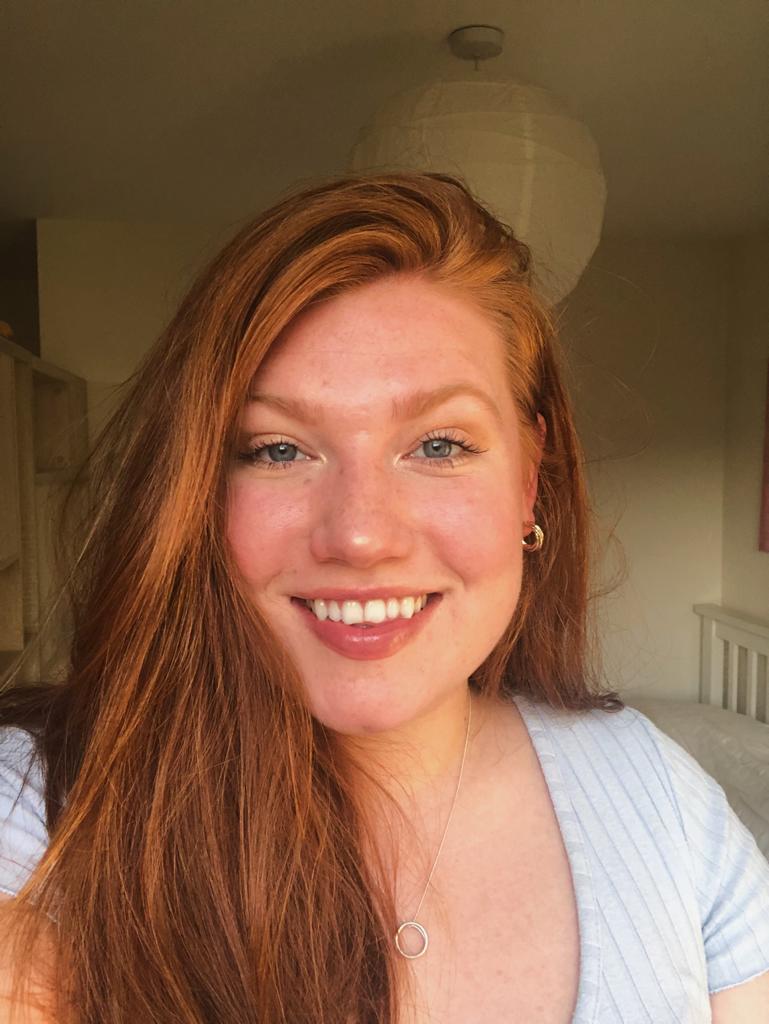
– Written by Annie, Youth Support and Participation Worker
CW: Sexual assault, victim blaming, coercion.
Lockdown hasn’t changed the rates of sexual violence.
1 in 5 girls (19%) have experienced street harassment during lockdown reveals a new survey by charity Plan International UK. In the poll taken in the 6th week of lockdown with 1000 girls aged 14-21, 1 in 5 (18%) of the girls asked said that the harassment had gotten worse during lockdown.
One in ten (9%) girls have received unwanted attention including having insults shouted at them, and one in ten (9%) have also experienced unwanted sexual attention, unwanted sexual or physical contact, or indecent exposure in public. Yet one quarter (26%) who had experienced harassment did not tell anyone about the incident.
It is not uncommon for victims to not report or tell others about sexual harassment, violence or assault.
At wïsh, we work with lots of young people who may relate to this topic in different ways and especially with the peer support groups, we discuss and create and campaign with our young people to raise awareness, develop relationship confidence and to create change for other young people.
I acted out some scenes and taken photographs to demonstrate common victim blaming / coercion scenarios. I wanted to make some simple visuals to be shared on social media:
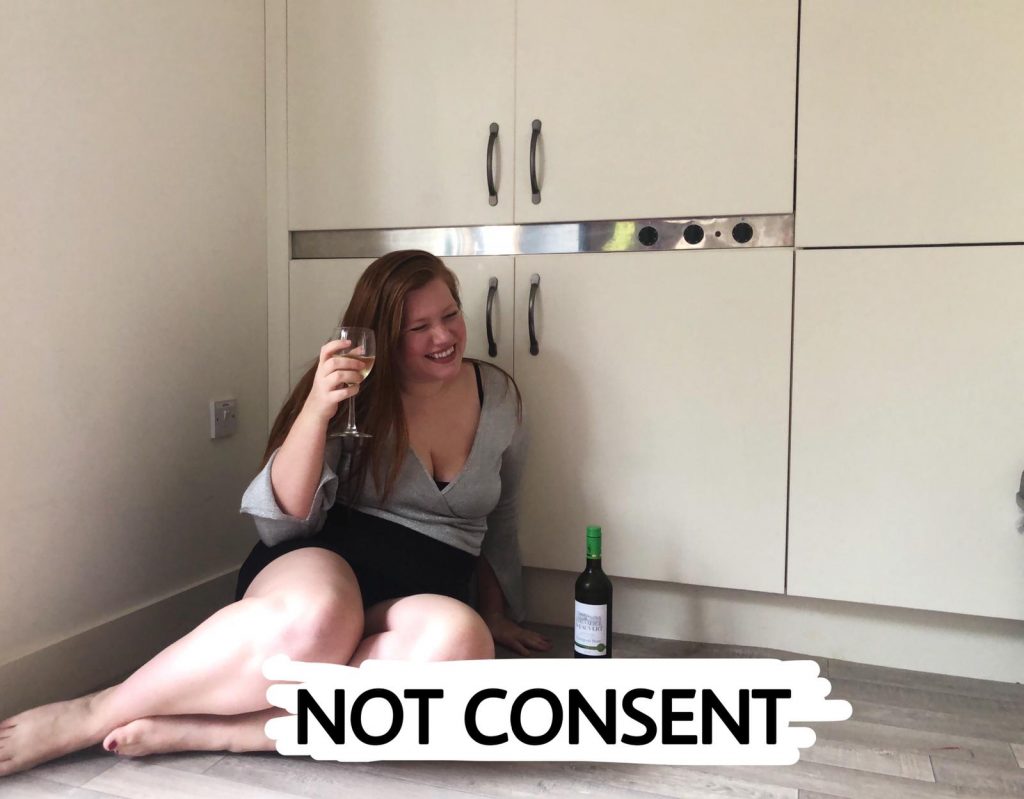
Drinking alcohol/ being drunk/ high is not consent.
Victim blaming is where the victim of a sexual assault is blamed either directly or indirectly for what happened to them.
The blame can come directly from the perpetrator, or from friends, family and from professionals. Examples of victim blaming: ‘what did you say’ ‘why didn’t you say no’ ‘she had texted him to come over’ ‘what were you wearing’.
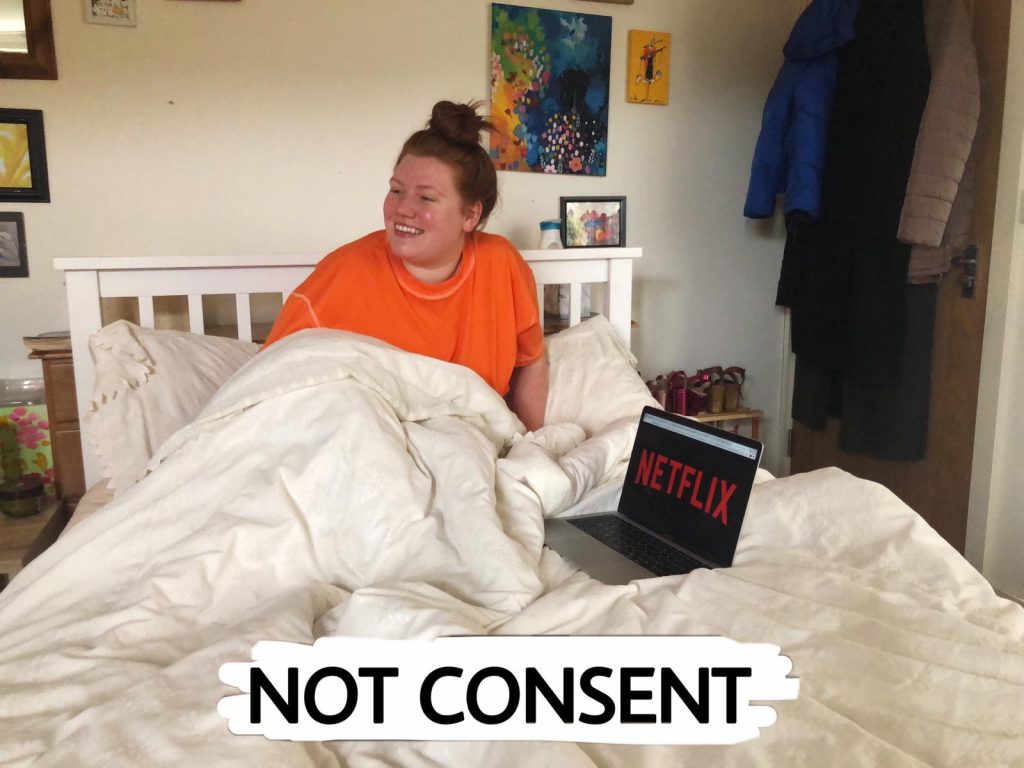
‘Netflix and chill’ is not consent. Watching a film or sitting in someone’s bed is not consent.
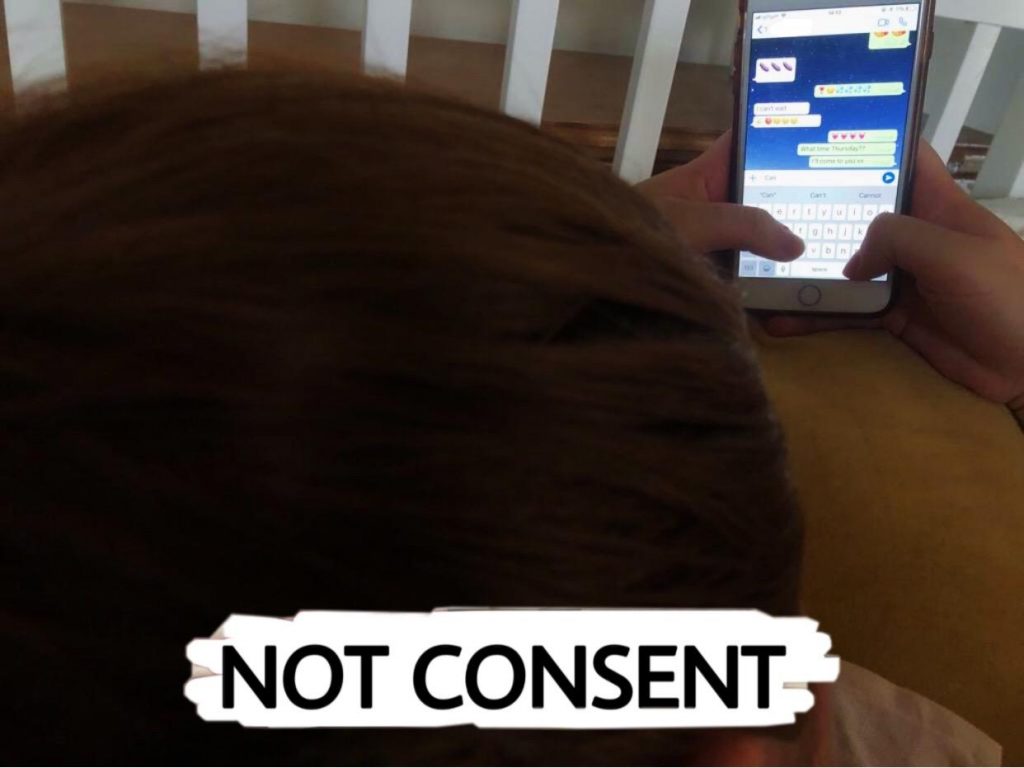
Sexting, sending nudes or agreeing to have sex over text is not consent.
Because we hear this language often and normalise it, it leads to internalising the blame too. A lot of victims can carry on with their lives for years before knowing they’ve experienced sexual assault or believing that it wasn’t their fault.
Coercion is also a common tactic used by perpetrators. Coercion is where someone might say things to make you do what they want. Examples ‘but you got me horny’, ‘but I bought you that gift’ ‘but you’re my girlfriend’ ‘if you don’t do it I might cheat’.
Coercion is wrong, victim blaming is wrong. Sexual assault is not the victims fault.
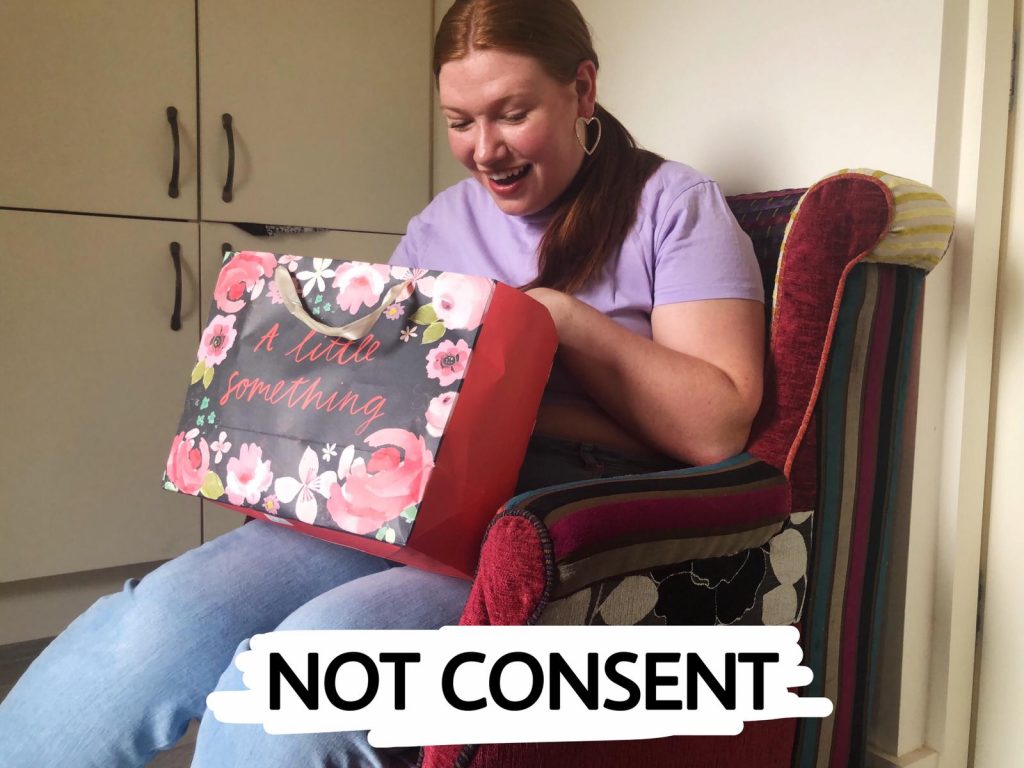
Receiving gifts or nice things, having your food paid for etc is not consent.
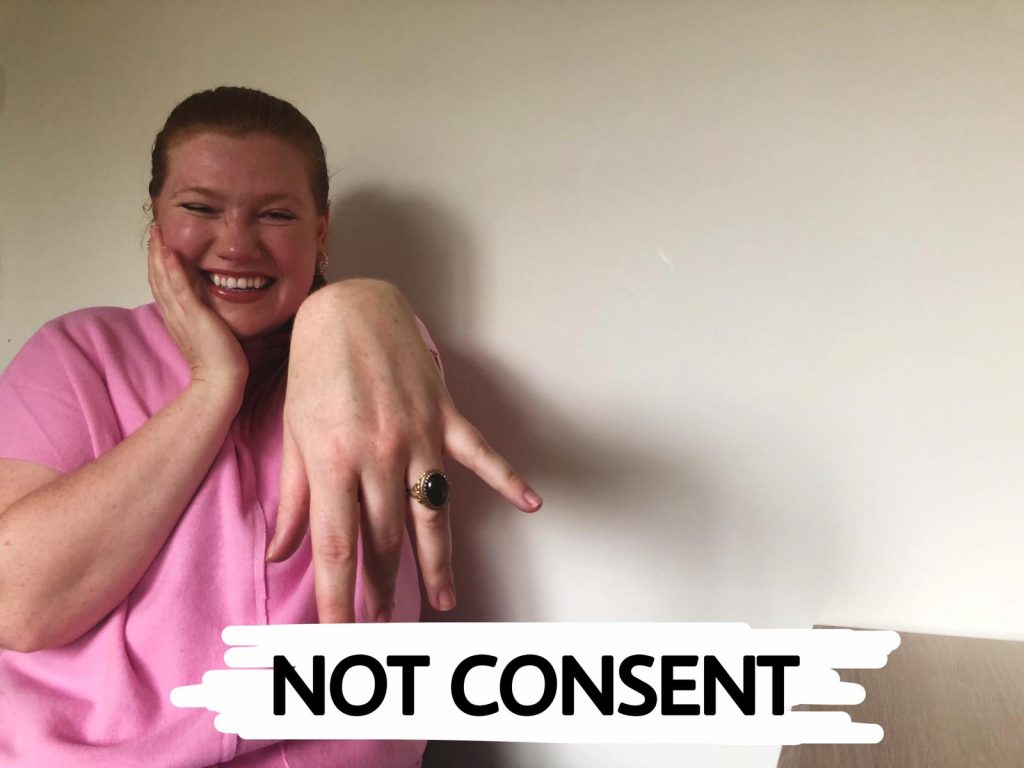
Being engaged/ in a relationship/ being committed to someone is not consent.
The #metoo movement showed the world just how common sexual assault is, how it can happen to anyone. The laws around sexual assault and rape are outdated and reinforce gender stereotypes, which isn’t helpful. The system is overall disappointing, with only 5.7% of reported rape cases ending in a conviction for the perpetrator. (Kelly, Lovett and Regan, A gap or a chasm? Attrition in reported rape cases, 2005)
We need to change the way we report, investigate & convict, we need to change the language in our laws to fit all gender identities.
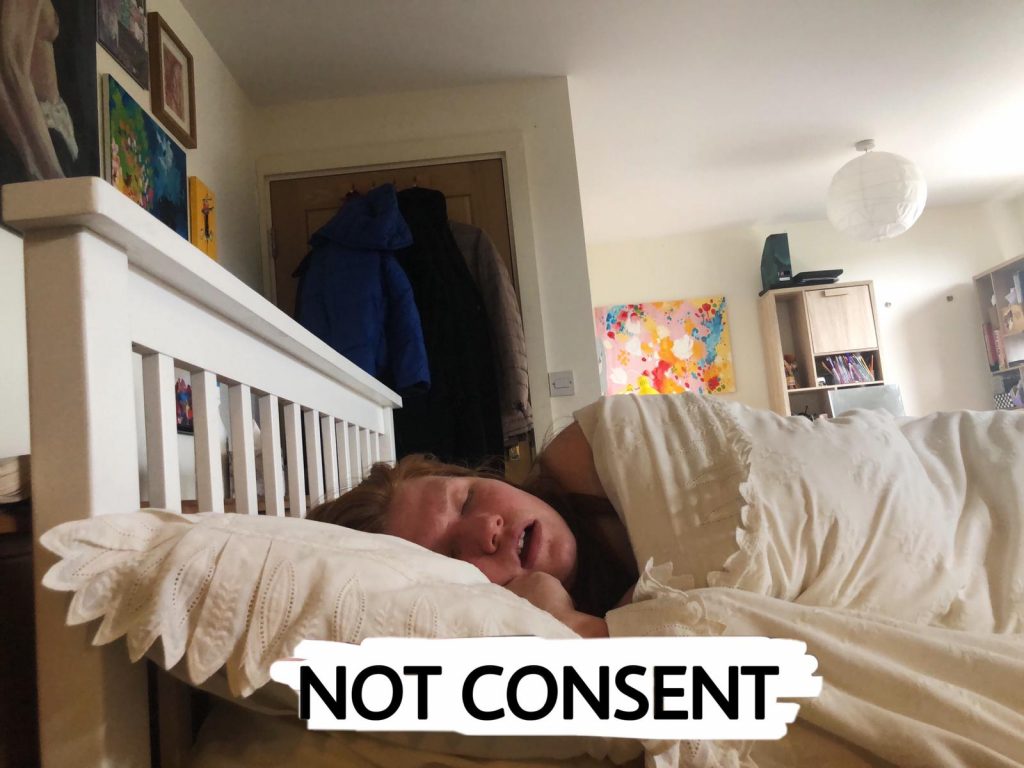
Being asleep (dressed or undressed) is not consent.
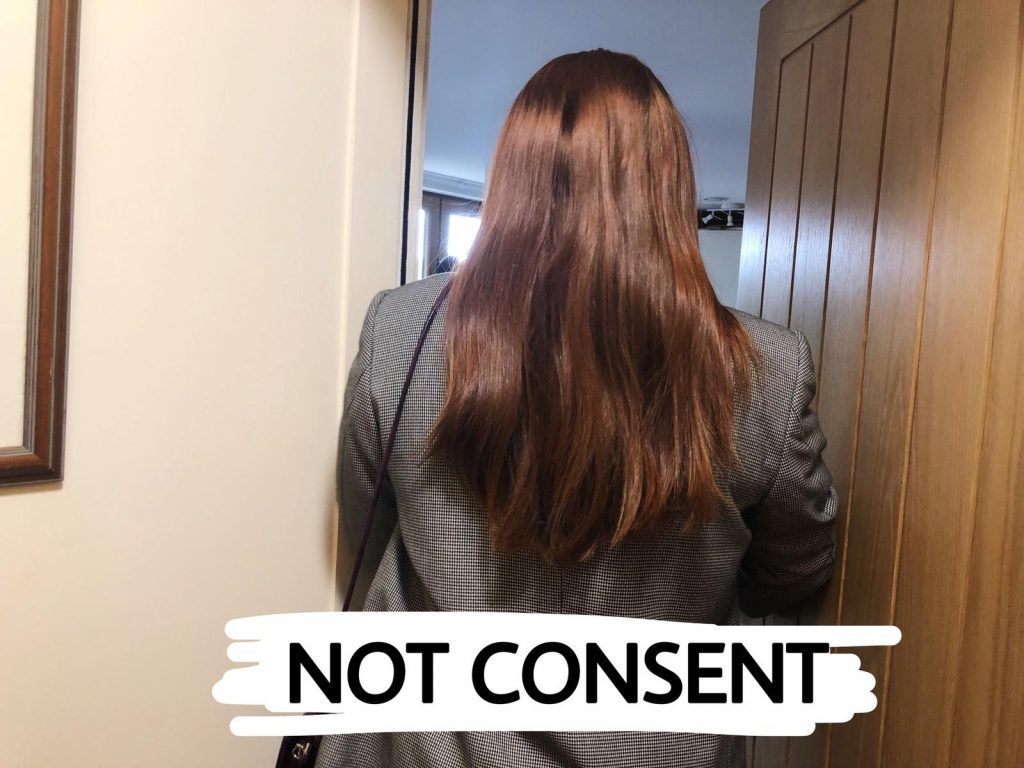
Inviting someone into your house, is not consent.
In our peer support group, the young people discussed the affects of lockdown and the increased risk to digital sexual exploitation. The young people discussed feeling the pressure to send videos and pictures to their partners to ‘keep things going’ and the boredom that might lead others to talk to people online and to do things.
Together the young people created social media posts and posters to help others that might be feeling isolated and at risk of exploitation.
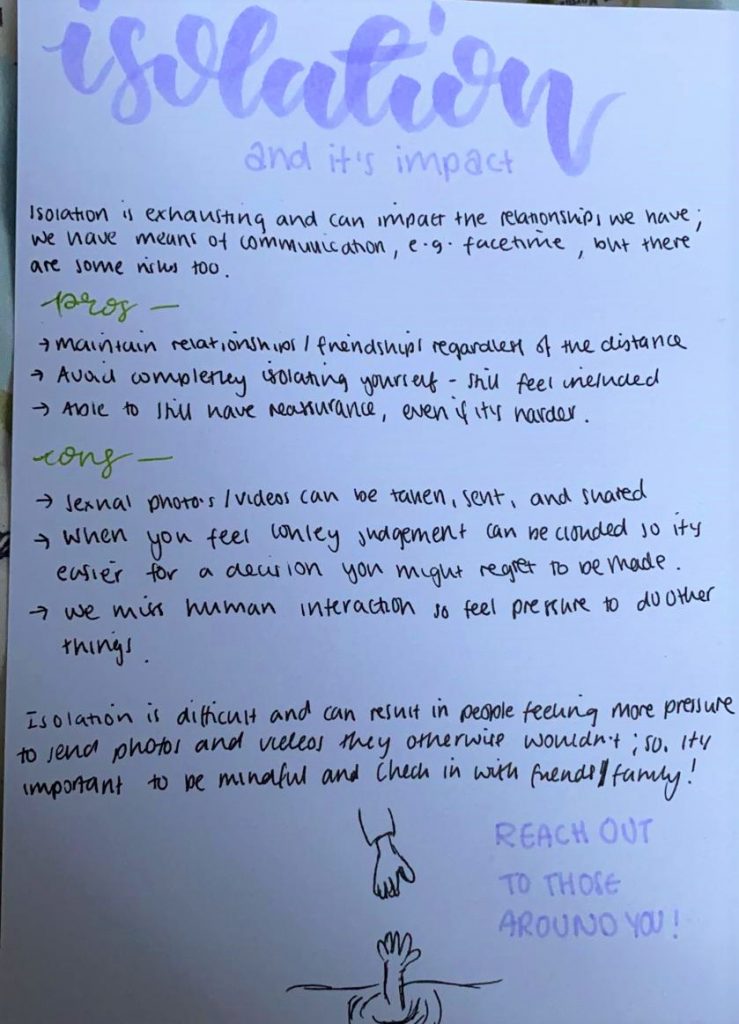
You never have to do anything you don’t want to, you always have the right to change your mind and to say no. Follow our social media to keep up to date on our youth projects around these issues.
If you have been affected by the issues in this blog and need to talk:
Rape crisis helpline 0808 802 9999 @rapecrisisew
Women and Girls advice and support 0808 801 0660 @womenandgirlsnetwork
We are still open digitally and taking referrals for groups and therapy, please see our up to date referral criteria: https://thewishcentre.org.uk/get-help/make-a-referral/
If you would like to use any of these images, please get in touch and credit us @thewishcentre